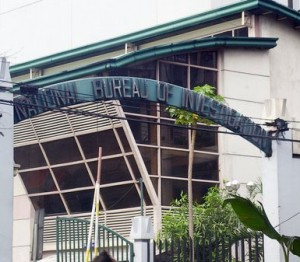ILOILO CITY—The National Bureau of Investigation has recommended the filing of a syndicated estafa case against officers and employees of an Iloilo-based financial investment firm that allegedly defrauded hundreds of investors of billions of pesos.
In its recommendation to the City Prosecutors Office signed on Nov. 9, the NBI’s Legal and Evaluation Division sought the prosecution of Reynaldo Navarro, president of Evergreen Finance (Iloilo) Inc. (EFI); his wife, Aida Navarro, corporate treasurer; sons Jeffrey Rey Navarro, Kenneth Ray Navarro, Eric Rey Navarro and Hubert Ray Navarro; Tricelle Claire Go-Navarro, and Gregorio Pagaran Jr., manager.
Navarro, speaking through his lawyer, has promised to pay all his obligations but denied he swindled his clients. In an earlier interview, his lawyer, Alfredo Arungayan III, said his client had insisted the EFI was not involved because he operated a personal lending business.
The NBI also recommended the filing of charges against the respondents for violation of Republic Act No. 8799 (Securities Regulation Code) and a separate charge for violation of Batas Pambansa Bilang 22 (Anti-Bouncing Check Law) against Navarro.
It, however, excluded EFI vice president Jose Que, corporate secretary Marybeth Que Dyhong and incorporator Erwin Que.
“There is no damning evidence that may indicate that subjects Jose Que, Erwin Que and Marybeth Que Dyhong acceded or had personal knowledge of the illegal activities of Reynaldo M. Navarro [and others recommended for prosecution],” according to the NBI’s nine-page recommendation, a copy of which was obtained by the Inquirer.
The case stemmed from a complaint filed by 17 mostly Chinese-Filipino businessmen in Iloilo province who sought the help of the Department of Justice in the recovery of about P400 million in investments and interests from EFI.
Navarro is also facing several related cases before courts in Iloilo.
Sources have estimated investments in EFI to reach P5 billion. The financial losses have severely affected the Chinese-Filipino community in Iloilo, slowing down businesses, according to sources.
The complainants said they invested in EFI, some as far as 15 years ago, and were assured of high interest rates. Most of them are retirees and small Chinese-Filipino businessmen who put in mostly their family’s assets and inheritance money.
They were issued EFI placement certificates but, according to Arungayan, these were personal guarantees and not representing the company.
In May 2012, EFI started to reneged on its obligations to pay the complainants the agreed interests rates and failed to return their investments, according to the NBI recommendation letter.
Checks issued by Navarro to the complainants were also rejected by banks, as the corresponding bank accounts were already closed.
Arungayan said Navarro could not fully pay his obligations immediately due to failure of creditors to pay their loans leading to business losses.
